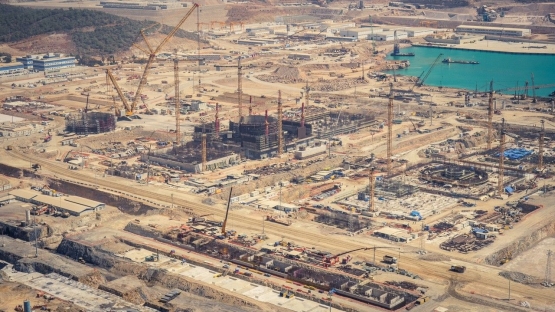More than 20 senior officials and decision makers from Turkey participated in the IAEA’s virtual national seminar on the legal framework for a nuclear power programme last week. Over two days, the main branches of nuclear law were covered, namely nuclear safety, security, safeguards and civil liability for nuclear damage. The seminar also focused on the elements of an adequate and comprehensive nuclear law specific to a nuclear power programme.
“Turkey has adhered to all international legal instruments adopted under the auspices of the IAEA on nuclear safety and security. In 2018, Decree Law No. 702 and Presidential Decree No. 4 were enacted establishing a comprehensive legal framework. In light of the nuclear power programme, this virtual activity was important for us by creating further awareness of the legal requirements for the safe, secure and peaceful uses of nuclear power,” said Berna Ozyardimci of the Turkish Energy, Nuclear and Mining Research Authority (TENMAK). Ozyardimci also serves as the National Liaison Officer to the IAEA technical cooperation programme.
Turkey is developing a nuclear power programme and aims to incorporate nuclear energy into electricity generation by the end of 2023. Three nuclear power plants (12 reactors) are planned for installation by 2030, and nuclear energy is expected to account for at least 15 per cent of the electricity generation mix in the next decades.
In opening the virtual seminar, Wolfram Tonhauser, Head of the IAEA’s Nuclear and Treaty Law Section, recalled that Turkey had received bilateral legislative drafting assistance in revising its legislation to support the planned nuclear power programme. He further highlighted that “national legislation should comprehensively cover all aspects of nuclear law, implement the relevant international legal instruments and establish and provide a clear delineation of responsibilities of organizations necessary for regulatory control.”
Participants in the seminar included representatives from the Nuclear Regulatory Authority Turkish Energy (NRA), Nuclear and Mining Research Authority (TENMAK), Ministry of Energy and Natural Resources, Nuclear Construction Inspection Organization and AKKUYU Nuclear JSC.
This virtual national seminar was implemented within the framework of the IAEA legislative assistance programme under the Technical Cooperation project “Enhancing National legal Frameworks in European Member States”.
In light of the nuclear power programme, this virtual activity was important for us by creating further awareness of the legal requirements for the safe, secure and peaceful uses of nuclear power.





